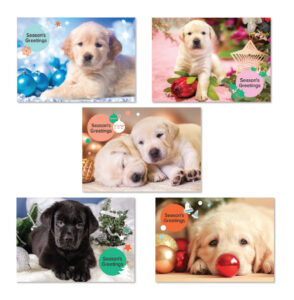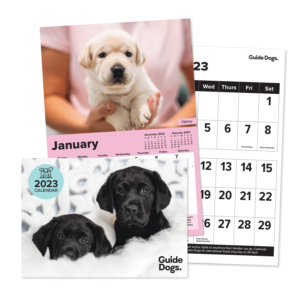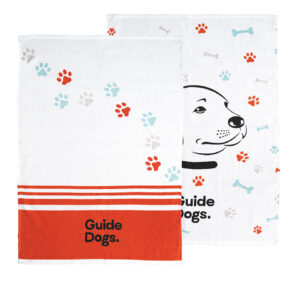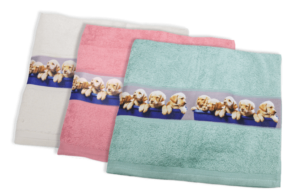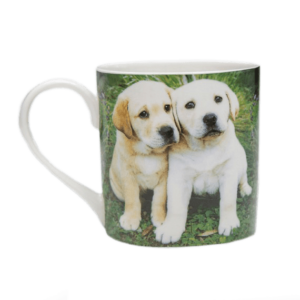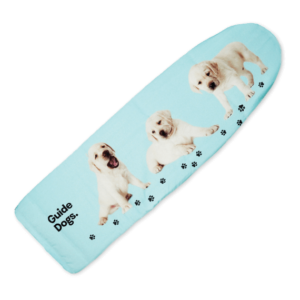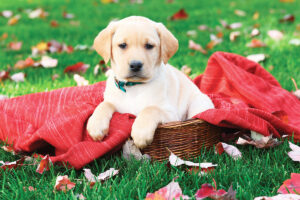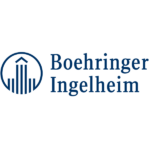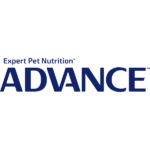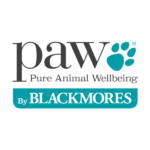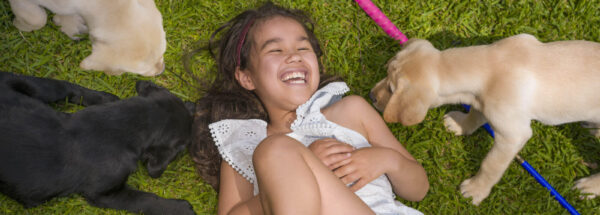Welcome
A message from the CEO
Welcome to the spring edition of Guide Dog Tales!
I am so excited to bring you each edition of Guide Dog Tales, as there is always so much to share with you, our incredible supporters.
In this edition, you will read about one of our Clients, Murray, who has overcome many challenges since losing his vision due to glaucoma. We also share some tips on how to look after your own eyes, from our friends at the Centre for Eye Health.
I also wanted to give you an update on how our Guide Dog Centre in Glossodia has been doing since the recent flooding in the area. I do hope you have stayed safe and dry in the current wet weather.
During the recent flood at our Guide Dog Centre, the staff (having been through this before) were ready to get to work when the weather warning came out. The first step was ferrying some of our dogs in training and necessary supplies out to our Puppy Raisers and Trainers before the bridges flooded and access to the Centre was cut off. Geared up with gumboots and raincoats the remaining team camped out at a staff member’s house nearby to take turns caring for the remaining dogs.
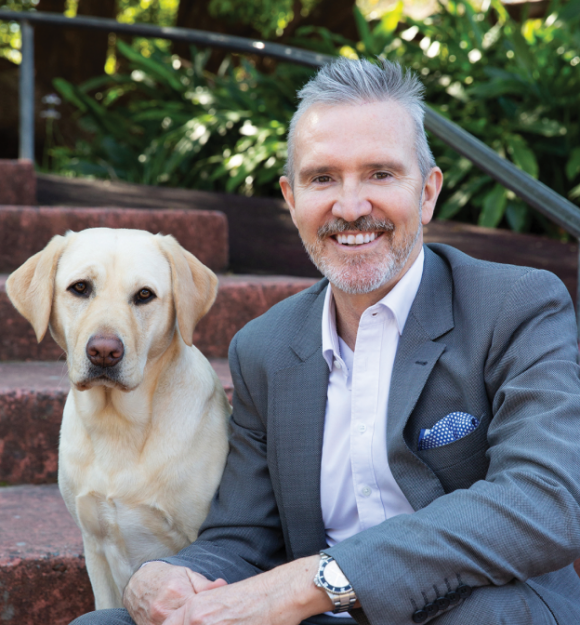
There was some minor flooding around some areas of the Centre but thankfully nothing too detrimental. Everyone was in good spirits and worked fantastically as a team to get through what needed to be done and ensure every dog was safe and well. (If you ask me, I think the dogs enjoyed some of that messy playtime, splashing in the puddles!)
As we edge closer to the end of 2022, I want to take the time to thank all our donors and supporters for helping us to achieve outstanding outcomes for our Clients. Without your support, our Clients would not be able to get the level of support that they need to lead independent and fulfilling lives.
Warmly,
Dale Cleaver
Chief Executive Officer
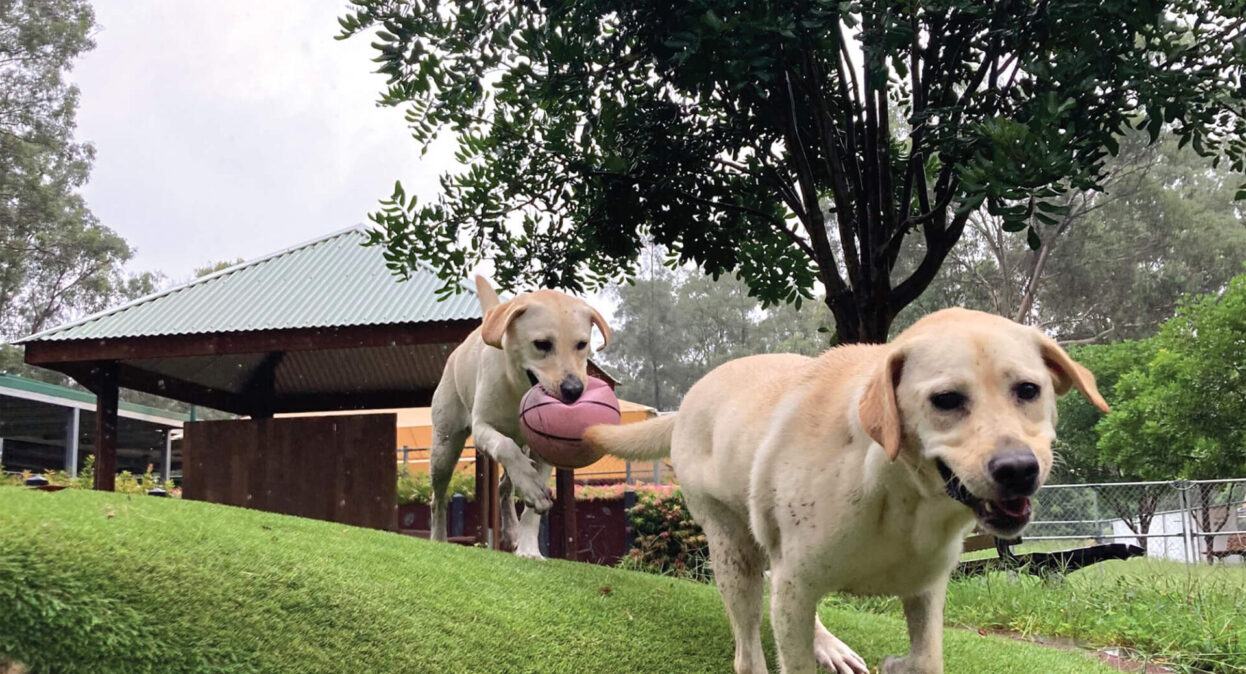
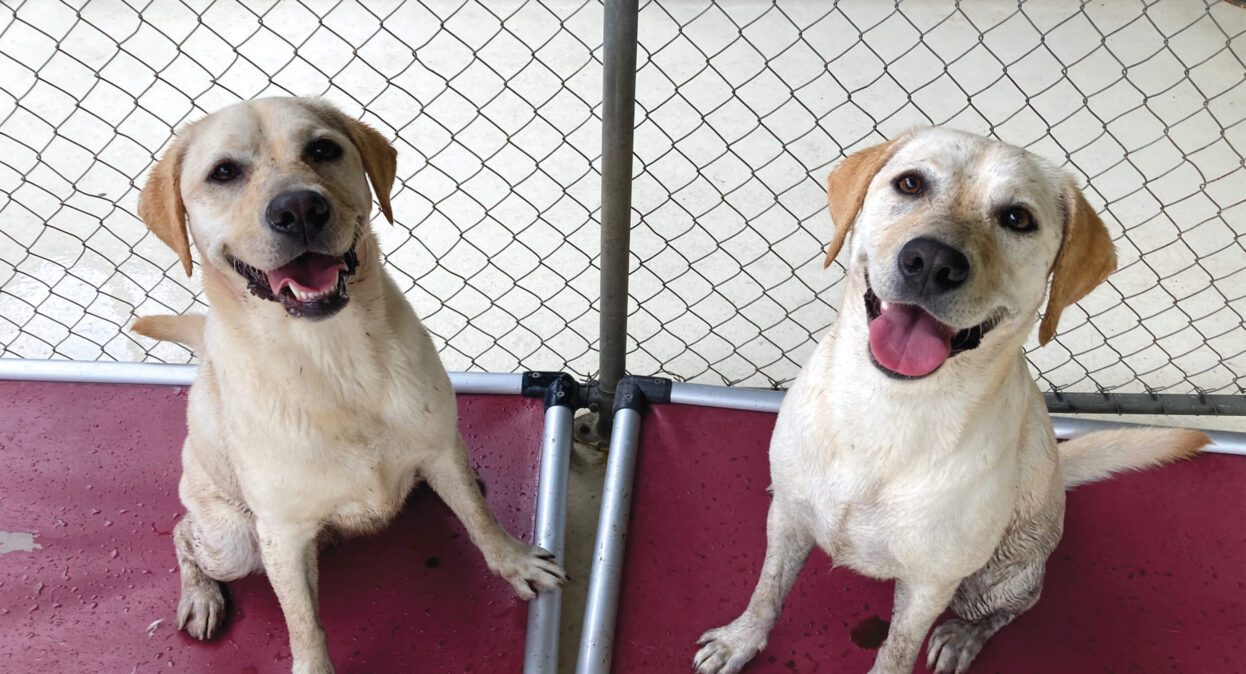
Client Spotlight
Murray’s story
Murray’s long-term interest in social work has led him through different fields, from aged care, support worker, teacher in the disability sector, an active member in a support group and more recently a university student of a social science degree.
In 2017, Murray lost his vision due to glaucoma and optical neuritis. Six months later, he got in contact with Guide Dogs.
Although he had bad Myopia since he was five years old, and been told from early on that his vision was going to deteriorate, losing his sight was still “extremely difficult,” says Murray, adding: “I spent a lot of time at home, waiting on a daily basis for my flatmate to arrive from work.”
Initially, he received Orientation and Mobility Services at Guide Dogs, becoming a proficient cane user, able to confidently navigate his surroundings, cross streets, and use public transport. Murray has also received lessons in different types of Assistive Technology available to him.
In 2018, Murray received his first Guide Dog Karli, a black Labrador who has been “a real life changer.”
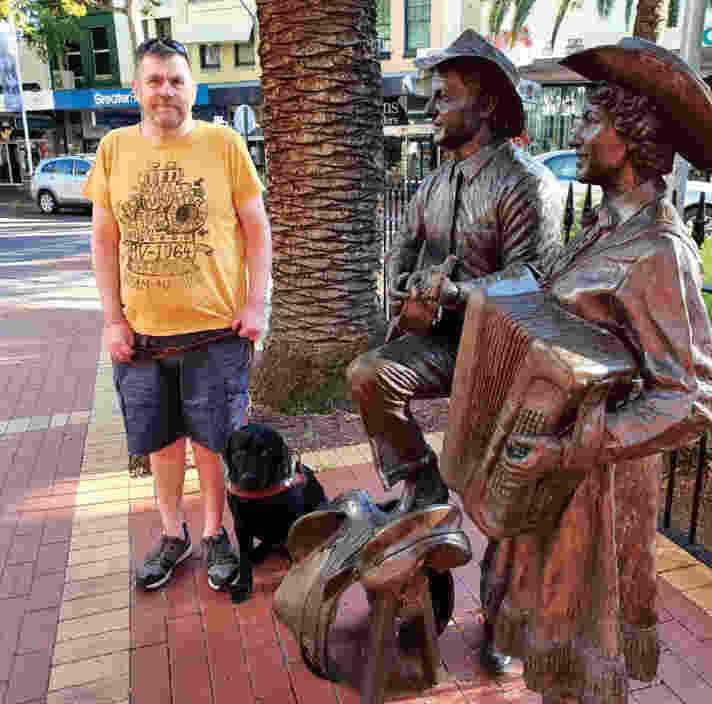
“Before receiving Karli, it would take me half an hour to reach the main shopping centre in town using the cane. After Karli, it took me just 10 minutes! I felt a lot more comfortable, a lot safer and more secure with her.”
Since starting their partnership, Murray has gone from strength to strength, reaching many significant goals. In 2019, he completed a Diploma in Community Services / Case Management at TAFE, the following year he completed a Diploma in Mental Health and in 2021 Murray started a Bachelor of Social Work, achieving credits and distinctions throughout his first year!
“With my Guide Dog I have been able to travel independently to the city, without anyone leading me around. My most significant changes are the amount of independence and confidence I have now to get out in the community.”
“Without a Guide Dog I just don’t know where I’d be…All the systems Guide Dogs has provided for me have been amazing.”
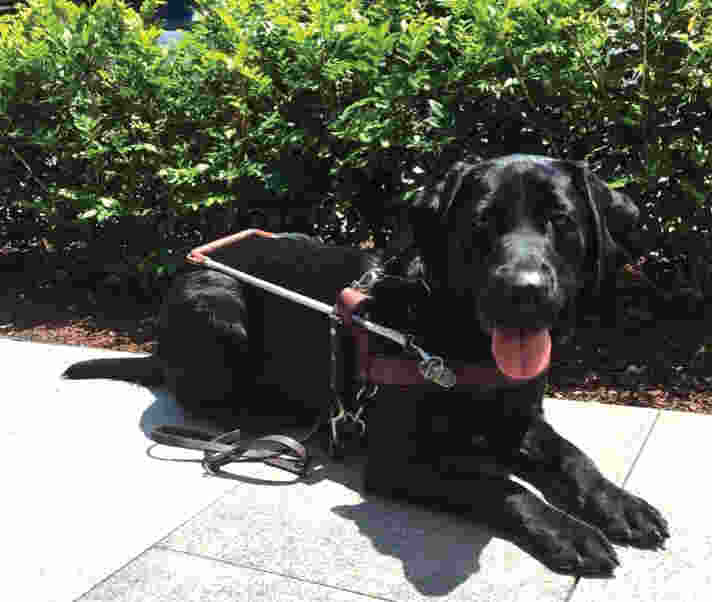
Accessibility through tele-health
Tele-practice became one of the only ways we could continue that vital one-on-one contact with Clients during the height of the COVID-19 pandemic, when it was even more essential than ever that we continued to provide the support to our Clients while also ensuring we kept both staff and Clients safe and played our part in decreasing the community transition impact of COVID-19.
Now, as we continue to transition to “a new normal”, tele-practice has remained a relevant and vital service for our Clients, helping to:
- Address workforce shortages in Orientation and Mobility practitioners, Occupational Therapists and Orthoptists. Practitioners are no longer bound by physical location and can spend more time working with Clients rather than being on the road.
- Reduce access barriers for Clients located in regional, rural and remote areas.
- Decrease waitlist times experienced by Clients.
- Provide a forum for Clients more comfortable receiving services this way.
We are excited that tele-practice has become one of the core ways we can provide services and support to Clients as we move towards the more flexible future of care.
Therapy Dogs
Meet Herbie!
While going through Guide Dog Training, Herbie decided he was more suited to be a Therapy Dog.
Now Herbie is working within NSW Health; there to lend a helping paw and provide support to children facing challenges while in hospital. Often used as a reward-based system for children at appointments or as a calming presence on the ward, it is not unusual to hear feedback that children will not attend an appointment unless Herbie is there.
Herbie has been voted the most-loved staff member multiple times, and even has his own ID badge and Outlook calendar!
There are many career paths that our dogs can take, all of which play an important part in enriching the lives of people in the community.
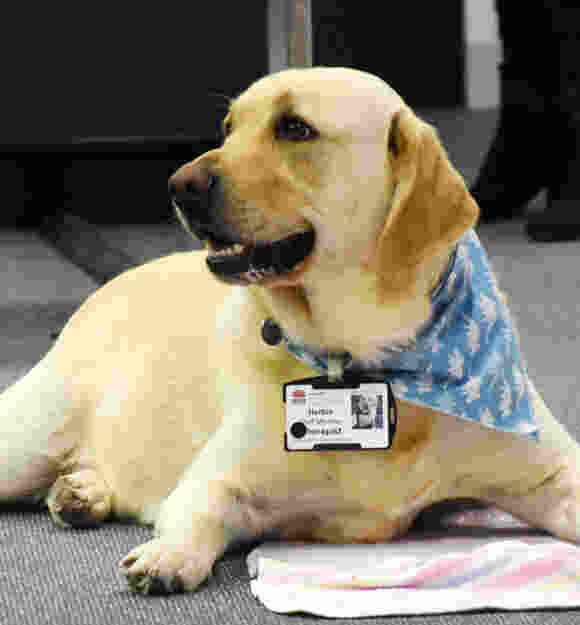
If you would like to learn more about our Therapy Dogs Program, please click the link below.
Supporter Spotlight
If only we’d known…
Did you know that just under half of Guide Dogs NSW/ACT’s funding comes through gifts that our supporters have included in their Will? And in fact, almost half of those gifts come as a surprise to us, from supporters who have never told us during their lifetime!
Bequestors and Guide Dog Partners, Carolyn and Neil Byers have been supporting Guide Dogs for over 20 years. Living on the doorstep of what one of our supporters recently described as “the jewel in the crown”, Carolyn has also been a valuable member of our wonderful volunteer team at the Guide Dogs Centre in Glossodia, helping out in the office and at Guide Dogs events.
Despite her volunteer connection with Guide Dogs, it was a few years before Carolyn decided to let us know she had also included a gift in her Will to Guide Dogs.
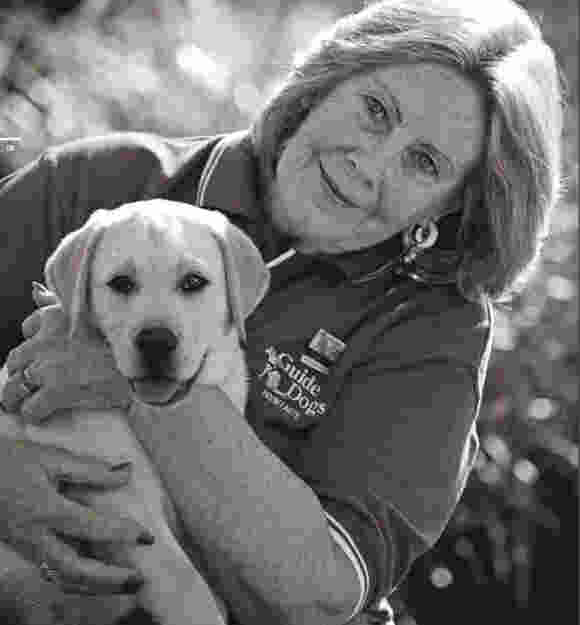
“I was at a local Rotary event and Guide Dogs Client and Speaker, Barbara Bonfield had just given a wonderful and highly inspirational talk about her experiences of being blind. When we spoke together afterwards, it just felt like it was the right moment to share with her my decision to leave a legacy after I died, to help others like Barbara lead an independent life”
And talking of events, we are delighted to be including coach trips to the Guide Dog Centre as part of our Bequestor Stewardship Program! We’ll be hearing firsthand from the team who look after and train these amazing dogs, while enjoying a behind-the-scenes guided tour of the Centre and of course some cuddles with the latest litter of adorable puppies!
If you have included a gift in your Will to Guide Dogs and are interested in joining us on an upcoming coach trip and tour of the Guide Dogs Centre, please call Ali Kershaw on 0400 148 038 or email akershaw@guidedogs.com.au.
Centre for Eye Health
Looking to the future – looking after your eye health
William Shakespeare once said: “He that is strucken blind cannot forget, the precious treasure of his eyesight lost.”
If we ask people which sense they fear losing most, overwhelmingly the leading response is eyesight. In fact, a researcher in the US who confirmed this, also added that “having good vision is key to one’s overall sense of wellbeing”. As a result, looking after your eyes is just as important as looking after the rest of your body, especially as we age – but what does that involve?
For the most part if you are less than 60 years of age it is recommended to have your eyes examined comprehensively at least every two years and annually if you are older. Your eye care practitioner may advise you to have more frequent eye examinations if you are at higher risk of eye disease such as having a systemic illness like diabetes or a family history of eye disease.
Regardless, if you are noticing a change in your vision, you should have it investigated promptly.
Importantly however, eye diseases such as glaucoma and macular degeneration can develop with minimal or no symptoms so that by the time we do notice a problem the condition may be advanced, with irreversible damage. The sooner a problem is identified, the better the prognosis.
As well as eye disease, careful eye examinations can also sometimes uncover an undiagnosed systemic illness which would otherwise go untreated and cause significant damage to your body. In addition, many chronic illnesses such as diabetes or high blood pressure can have a significant impact on the health of the eye, especially if they are poorly controlled. This is another reason why it’s important to follow your doctor’s advice and manage those conditions optimally.
Ultimately, as with most health-related conditions, when it comes to the eyes, “prevention is better than a cure”.
“Eye diseases such as glaucoma and macular degeneration can develop with minimal or no symptoms so that by the time we do notice a problem the condition may be advanced, with irreversible damage.”
Partnerships
Bringing joy in rough times
Recently, staff members from the Philanthropy Team were able to visit one of our Guide Dog Partners, Jenny Davies, in her aged care facility. We were also able to bring the dog she sponsored, Gem, to meet her.
Jenny was unable to meet Gem over the last two years due to COVID-19 and numerous lockdowns and this visit truly meant a lot to her. She was overjoyed to see Gem and hear all about her training progress. Gem also did very well in a new environment, was quiet and calm in Jenny’s room, and had lots of cuddles and pats from everyone.
To ensure the safety of Jenny and ourselves, we took Rapid Antigen Tests upon arrival and also wore two face masks and a face shield. The aged care facility was very accommodating and were very happy to have Gem come in for a visit. She also brightened the day of other residents sitting in the front room who watched us come in. It was a very successful visit and we were glad we were able to finally make this happen for Jenny and are excited to continue conducting visits safely and more regularly.
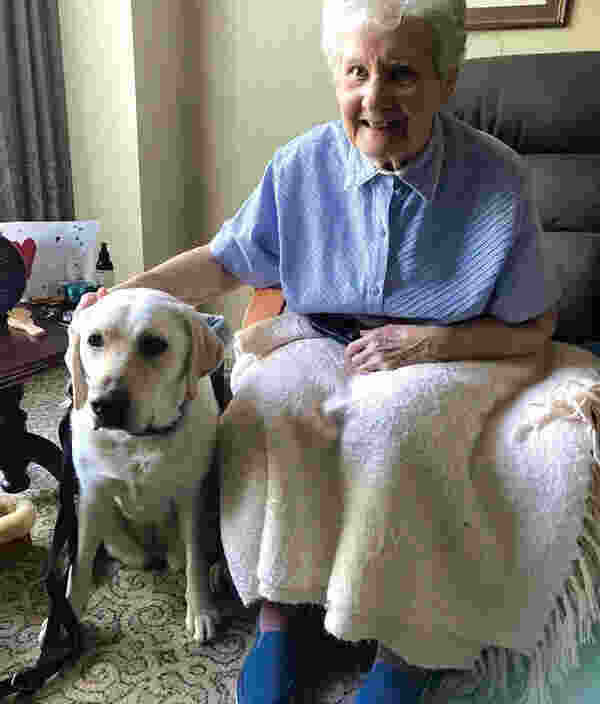
What’s happening on CatchUp?
Earlier this year, Guide Dogs Australia launched CatchUp – a brand new online social platform where people with low vision or blindness, their families and support networks, referrers and Guide Dogs staff and volunteers can go to connect, socialise, learn and get support.
We’re constantly improving CatchUp with input from the Clients and practitioners that use it. Some new features include:
- Two-way conversation functionality.
- Social groups with forum features.
- Private messaging.
- Profile personalisation.
- Member look-up.
- Event listing for in person and online events.
- Connecting with other members (similar to Facebook’s “Friends” functionality).
If you know someone in the blind or low vision community that would like to join Catch Up, please send them to: catchup.guidedogs.com.au/welcome.
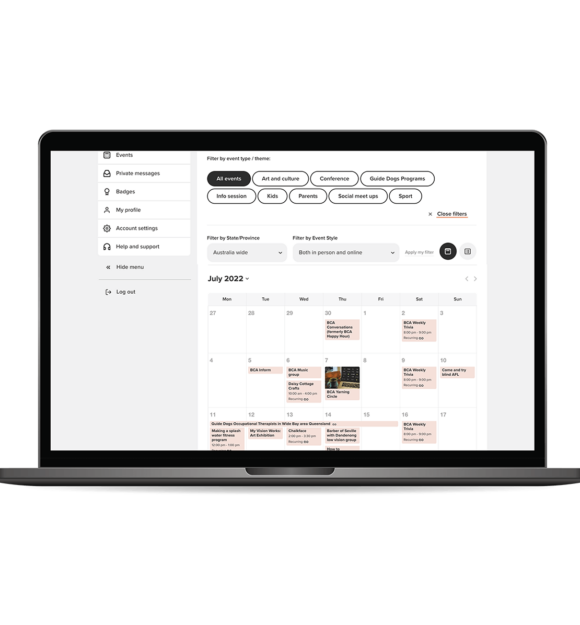
Spring health for dogs
Coming into spring, we start to think about how lovely it is to see all the new buds opening up. Although pretty to look at, some of these flowers can be quite toxic to animals, especially dogs.
Puppies love to explore everything with their mouths so are at most risk, but some adult dogs will eat plants, too. Below are a couple of plants that have caused problems for our Guide Dog puppies. Luckily, they have seen a vet quickly, and we have not lost any of our pups to these plants.
The Brunsfelsia is commonly known as the “Yesterday, Today, Tomorrow” plant. Some dogs will become attracted to the plant because of the flowers, but eating any part of this plant, especially the flowers and berries, can cause vomiting, seizures and death.
Guide Dog puppy Noah was four months old when he and his pet brother decided it would be fun to try eating the seeds of the Sago palm. The spiky leaves didn’t deter them from getting to the bright red seeds in the middle, and both needed a trip to the emergency centre. All cycad plants are toxic and can cause liver damage days after they have been eaten. Luckily Noah and his brother recovered.
There are many lists online of toxic plants, which are useful if you are adding plants to your backyard, but if you think your dog has eaten plants it is best to call your local vet to discuss.

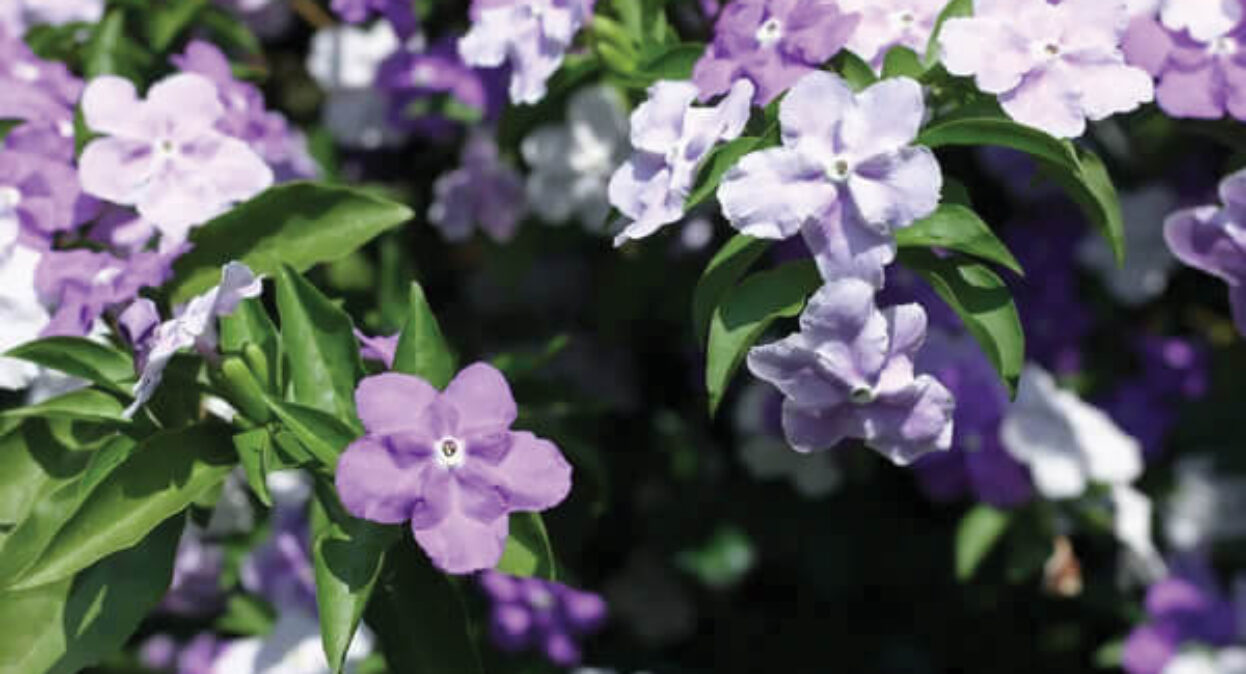
PAWGUST Wrap-up
We are thrilled to share that PAWGUST 2022 has been another PAWsome campaign!
Almost 8,000 people braved the chilly weather nationally, overall raising over $1 million for Guide Dogs Australia!
Thank you to everyone who committed to either walking or running at least 30 minutes a day for the entire month of August. The vital funds that we raised will go towards the breeding, raising and training of our iconic Guide Dogs and change the lives many people living with low vision or blindness across Australia.
Thanks for your support of PAWGUST and we look forward to seeing you pull on the winter woollies and getting out there again next year!
Protecting your best friend
What to do… daily.
Search your dog for ticks by running your hands through their coat to the skin level, all over their body (even between their toes and around their mouth.) Your dog will love his daily massage!
What to do… monthly.
Tick-proof your home to reduce exposure to ticks by clearing leaf litter and keeping grass clipped short.
What to do… all year round.
Use an effective tick control product such as NexGard SPECTRA® all year round. We give our dogs NexGard SPECTRA® once a month, 12 months of the year. It provides the most complete protection against fleas, ticks, mites, heartworm and intestinal worms, all in one tasty chew. Try giving it to your dog or puppy on the first day of the month – that way it’s easy to remember.
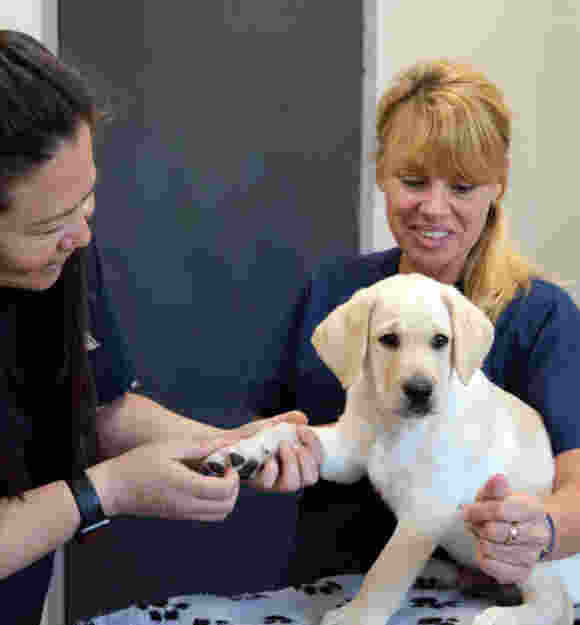
Huge shout-out to Boehringer Ingelheim Animal Health Australia who provide complete preventative health support for our puppies and adult dogs, with the ongoing provision of NexGard SPECTRA® and canine vaccines.
Make a difference every time you shop at IGA!
The Ritchies IGA Community Benefits Program is changing. With a new-look app with more exciting features it’s now easier than ever to support Guide Dogs.
If you are a current IGA member, log into your account at loyalty.ritchies.com.au to update your account. If you would like to get involved, you can also register using the link above and select Guide Dogs as your charity of choice.
Together we can change lives!

Ritchies IGA
Gift Ideas
Give the PAWfect Present this year!
This year we have teamed up with our FURiends at Guide Dogs Queensland to bring you the full Guide Dogs merchandise range available online at: guidedogs.com.au/pawfect-presents.
Every product you buy supports Guide Dogs NSW/ACT puppies in training on their journey to become Guide Dogs.
-
Pack of 10 - $12.95
-
$19.95 each
-
Pack of 2 - $29.95
-
10 sheets and tags - $24.95
-
Pair of towels - $60.00
-
4 pack - $49.95
-
$36.95 each
-
$32.95 each
Ordering is easy!
- Visit guidedogs.com.au/pawfect-presents.
- Shop the full range of merchandise and select your favourite gift for you or your loved ones.
- Make your secure purchase.
Place your order by Thursday 1 December to receive your items in time for Christmas! Our office will be shut from close of business Thursday 22 December 2022 until Monday 9 January 2023. Any orders received during this period will be fulfilled after 9 January.
If you have any questions about your existing order, please call 1800 007 460.

Partner Update
The PETstock team show how PETspired they really are!
Supporting Guide Dogs Australia since 2014, the Petspiration Foundation (formerly PETstock Assist, the charity arm of the Petspiration Group) has raised more than $500,000 – and their support keeps coming.
Team members passionately donate through Workplace Giving; a simple, tax-effective way to give to Guide Dogs. Workplace Giving allows people to support Guide Dogs in a very real way, providing long-term, sustainable income.
As a major national partner of PAWGUST, Petspiration team members were also encouraged to get fit and active during winter, pounding the pavement 30 minutes a day over the 31 days of August to raise funds for Guide Dog puppies in training. What a great way to get fit and give back!
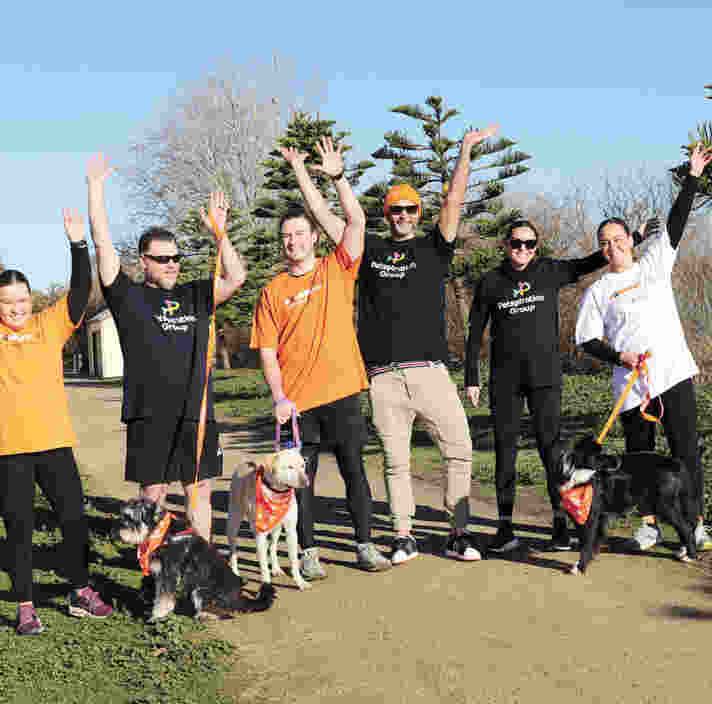
PETstock stores were a haven of activity and support this PAWGUST with customers able to purchase products that supported Guide Dogs, donate directly or round up their purchases. All amazing ways to support Guide Dogs in their quest to help our Clients – people living with low vision or blindness – achieve their goals.
The lives of some of these Clients were highlighted in the hugely successful new online docuseries, Born to Lead, another Guide Dogs initiative proudly supported by the Petspiration Group.
“We are incredibly thankful to the Petspiration Foundation for their continued support, and to the many Australians who have donated as part of the instore activity this August. This generosity helps our Clients achieve their individual goals and live a life of their choosing,” said Dale Cleaver, CEO Guide Dogs NSW/ACT.
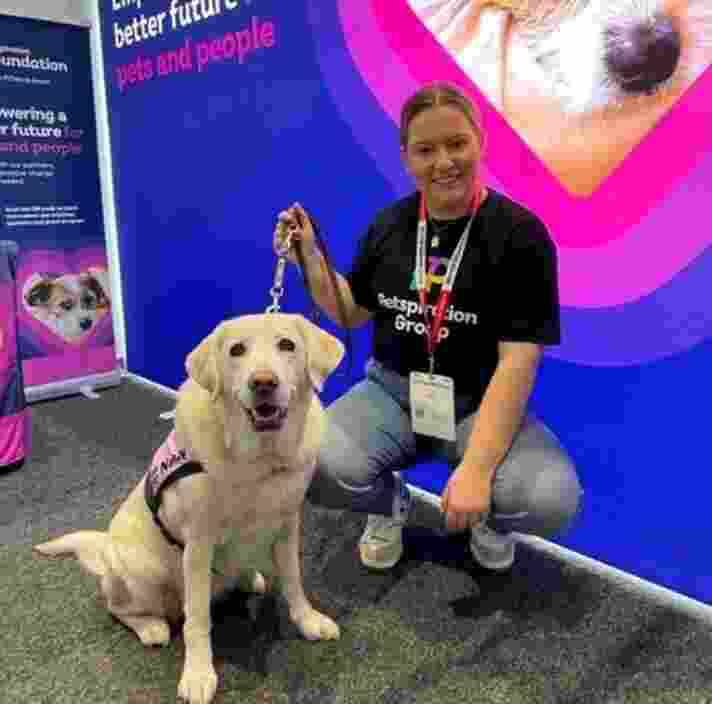
Our Supporters
Proudly supported by
We’re thankful to have an incredible group of Corporate Partners who support us through donations, products and services in kind, volunteering and workplace giving.
More about our partnersYour donation is the difference!
Your generosity is the driving force behind our life-changing support. Thank you for your vital contribution.
Ready to continue?
Seems like you have filled this form earlier. Let’s pick up where you left off.

